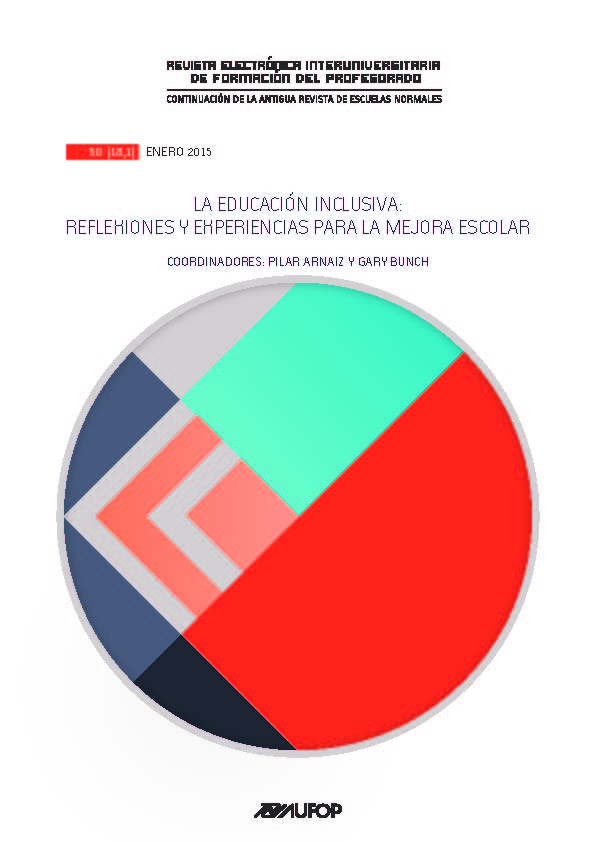Evaluation in primary education as starting point in the development of inclusive improvement plan in the Region of Murcia
Abstract
Educational institutions face the challenge of offering quality and inclusive education. Assessment thus becomes an essential tool to determine where we are and what ought to be changed in order to achieve our ends. In this paper we present a self-assessment process carried out in four primary schools from the Region of Murcia (Spain). The instrument used was the Self-Assessment Guide for Attention to Diversity from Inclusion (ACADI), specifically, the educational process dimension. This instrument allowed the four schools to get a diagnosis of their current situation, as well as to identify their strengths and weaknesses in order to promote education for all. This study applied a cooperative and evaluative research methodology, in which participants from each of the schools reflected upon their own reality and practice. Overall results showed that planning and organization of teaching, respect for students´ learning styles, and open-minded assessment were key strengths. On the other hand, the main weaknesses were organization of teacher support, respect for students´ learning pace and individual characteristics, school-social context interaction, and active involvement of students in their own learning. The main conclusion is that learning about the difficulties faced by schools is the first step to promote inclusive schools.
Downloads
-
Abstract5660
-
PDF (Español (España))2779
Los artículos que se publican en esta revista están sujetos a los siguientes términos:
1. El Departamento de Métodos de Investigación y Diagnóstico en Educación de la Universidad de Murcia (España), junto con el Servicio de Publicaciones de la Universitdad de Murcia (Editum) son los editores de la revista REIFOP y conserva los derechos patrimoniales (copyright) de los artículos publicados, permitiendo la reutilización de las mismos bajo la licencia de uso indicada en el punto 2.
2. Las obras se publican en la edición electrónica de la revista bajo una licencia Creative Commons Reconocimiento-NoComercial-SinObraDerivada 3.0 España (texto legal). Se pueden copiar, usar, difundir, transmitir y exponer públicamente, siempre que: i) se cite la autoría y la fuente original de su publicación (revista, editores y URL de la obra); ii) no se usen para fines comerciales; iii) se mencione la existencia y especificaciones de esta licencia de uso.
3. Condiciones de auto-archivo. Se permite y se anima a los autores a difundir electrónicamente las versiones pre-print (versión antes de ser evaluada) y/o post-print (versión evaluada y aceptada para su publicación) de sus obras antes de su publicación, ya que favorece su circulación y difusión más temprana y con ello un posible aumento en su citación y alcance entre la comunidad académica. Color RoMEO: verde.















